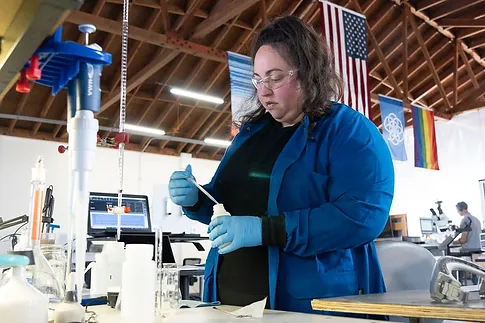ImpactAlpha, March 17 — Misperceptions of risk among many lenders make Black-owned small businesses twice as likely to get rejected for bank loans as white-owned small businesses. A new fund raised by the Expanding Black Business Credit Network aims to shift the narrative.
The Black-led consortium of community development financial institutions, or CDFIs, has raised $29 million for the Black Vision Fund to increase the amount of capital available for lending by its members. The goal: reduce the racial wealth gap.
“The six CDFIs that are part of the Black Vision Fund each have shown that you can lend money to Black people and you will get paid back,” said Gary Cunningham of Prosperity Now, the Washington, D.C. nonprofit that helped establish the network and raise the fund. The aim of the Black Vision Fund “is to demonstrate that we can significantly increase lending to Black organizations, both nonprofit and for-profit, and we can see a return in investment.”
The loans will be underwritten by community lenders including Jackson, Miss.-based Hope Credit Union, the National Community Investment Fund in Chicago, Minneapolis-based Metropolitan Economic Development Association, City First Broadway Bank in D.C. and Los Angeles, Community First Fund in Philadelphia, and Florida-based Black Business Investment Fund.
Black entrepreneurship
The CDFIs will receive borrowed capital from the intermediary fund based on their capital needs to onlend to the Black small businesses in their pipelines. LISC’s New Markets Support Company will manage the fund.
“Unless we shift the frame, we’re going to lose out, because the majority of jobs in America are created by the small business community,” Cunningham told ImpactAlpha. “White small business owners are basically declining and small business owners of color are increasing. Women of color are the fastest growing entrepreneurs in the country.”
Getting additional capital to such businesses is critical to turning the pandemic-related surge in Black entrepreneurship into a long-term trend.
“We’re seeing an uptick in demand across the spectrum, from small mom-and-pop businesses to small service businesses, to larger companies that are looking to acquire real estate,” said Hope’s Bill Bynum, who chairs the consortium. “We want to make sure they’re adequately capitalized. The fund will allow us to respond to the needs of more businesses.”
The Black Vision Fund was catalyzed by a $10 million grant from Wells Fargo, which serves as first-loss capital and helped attract long-term and low-interest senior debt from Amalgamated Bank, Packard Foundation, the family office Ceniarth, the Jewish Community Federation, Local Initiatives Support Corp. and Opportunity Finance Network.
Catalytic capital
The vehicle “spreads capital to CDFIs that have been doing great work in their communities for a long time, but were in need of additional lending capital, specifically for Black small businesses,” Ceniarth’s Greg Neichin told ImpactAlpha. “Expanding Black Business Credit wanted to demonstrate that they, as a Black-led consortium, could pull together a fund to support themselves.”
EBBC was formed in 2016, initially as a CEO peer learning network, to address disparities in access to capital for Black small businesses. The goal was to share the best lending practices and prove out the thesis that increased lending to Black small businesses has potential to reduce persistent inequalities of wealth and income in underserved communities.
“It’s interesting that CDFIs, and particularly Black-led and owned CDFIs, have gotten a lot more attention since then,” said Bynum. “We continue to demonstrate that if properly capitalized, these businesses can play a critical role in creating jobs and strengthening communities that have been historically underinvested in.”











